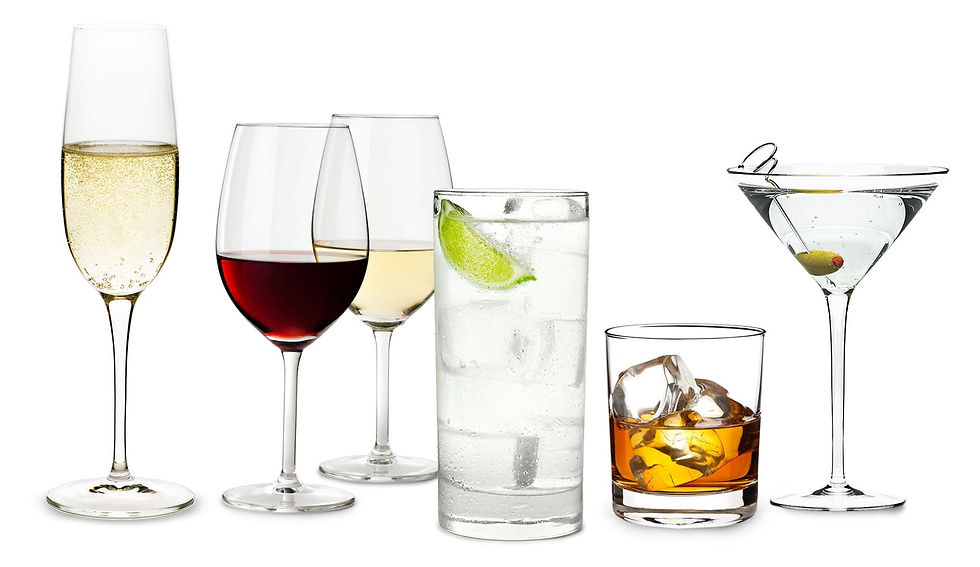What’s “Normal” vs “Problem” Drinking?
- Jeffrey Reynolds
- Jan 11, 2022
- 2 min read
Updated: Jan 26, 2022

If Dry January has left you wondering how much alcohol is too much - when things move into problematic territory - you're not alone.

According to the Dietary Guidelines for Americans, moderate alcohol consumption is defined as having up to 1 drink per day for women and up to 2 drinks per day for men. This definition refers to the amount consumed on any single day and is not intended as an average over several days. However, the Dietary Guidelines do not recommend that people who don’t usually drink alcohol take that as a green light to start.
For the purposes of evaluating amounts of alcohol that may be consumed, the Dietary Guidelines define one alcoholic drink-equivalent as containing 14 g (0.6 fl oz) of pure alcohol, which includes 12 fluid ounces of regular beer (5% alcohol), 5 fluid ounces of wine (12% alcohol), or 1.5 fluid ounces of 80 proof distilled spirits (40% alcohol).

Excessive alcohol consumption—which includes binge drinking; high-risk drinking (8 or more drinks a week for women and 15 or more drinks a week for men); and any drinking by pregnant women or those under 21 years of age—has no benefits and comes with significant risks.
Outpacing deaths related to every other drug, including opioids and heroin, excessive drinking is responsible for 88,000 deaths in the US each year, including 1 in 10 deaths among working age adults (age 20-64 years). Binge drinking accounts for over half of the deaths.
Excessive drinking increases the risk of many chronic diseases and violence and, over time, can impair short- and long-term cognitive function. Over 90 percent of U.S. adults who drink excessively report binge drinking, and about 90 percent of the alcohol consumed by youth under the age of 21 is in the form of binge drinks. Binge drinking is associated with a wide range of health and social problems, including sexually transmitted diseases, unintended pregnancy, accidental injuries, and violent crime.
Among those the CDC says should not consume alcohol at all are the following: individuals who are taking certain over-the-counter or prescription medications or who have certain medical conditions; those who are recovering from alcoholism or are unable to control the amount they drink; and anyone younger than 21 years of age. The CDC and virtually every other health/public safety entity recommends that individuals refrain from drinking alcohol if they are driving, planning to drive, or are participating in other activities requiring skill, coordination, and alertness. Women who are or who may be pregnant should not drink. Drinking during pregnancy, especially in the first few months of pregnancy, may result in negative behavioral or neurological consequences for the baby. No safe level of alcohol consumption during pregnancy has been established. On the question of breastfeeding, CDC suggests that women should consult with their health care provider regarding alcohol consumption.
So, if you have two glasses of wine or two beers every day and a few on the weekends, are you an alcoholic?
Not necessarily, but your alcohol use exceeds what the federal government has deemed “healthy” and it might be time to ask yourself this question: Will I feel better and be healthier if I dial back my drinking or eliminate alcohol from my diet?










Comments